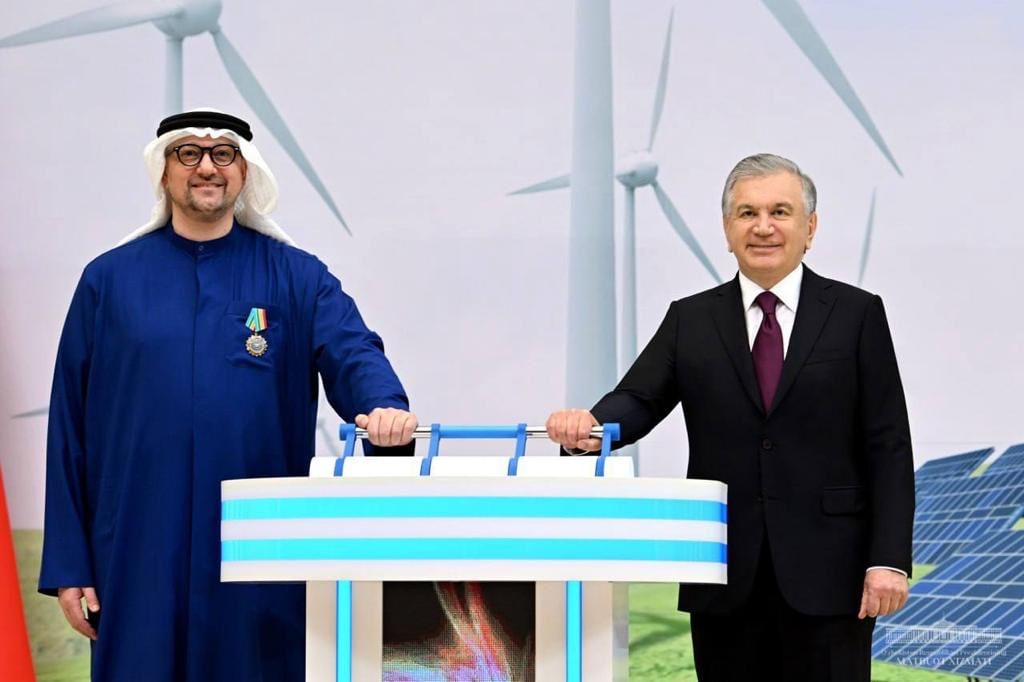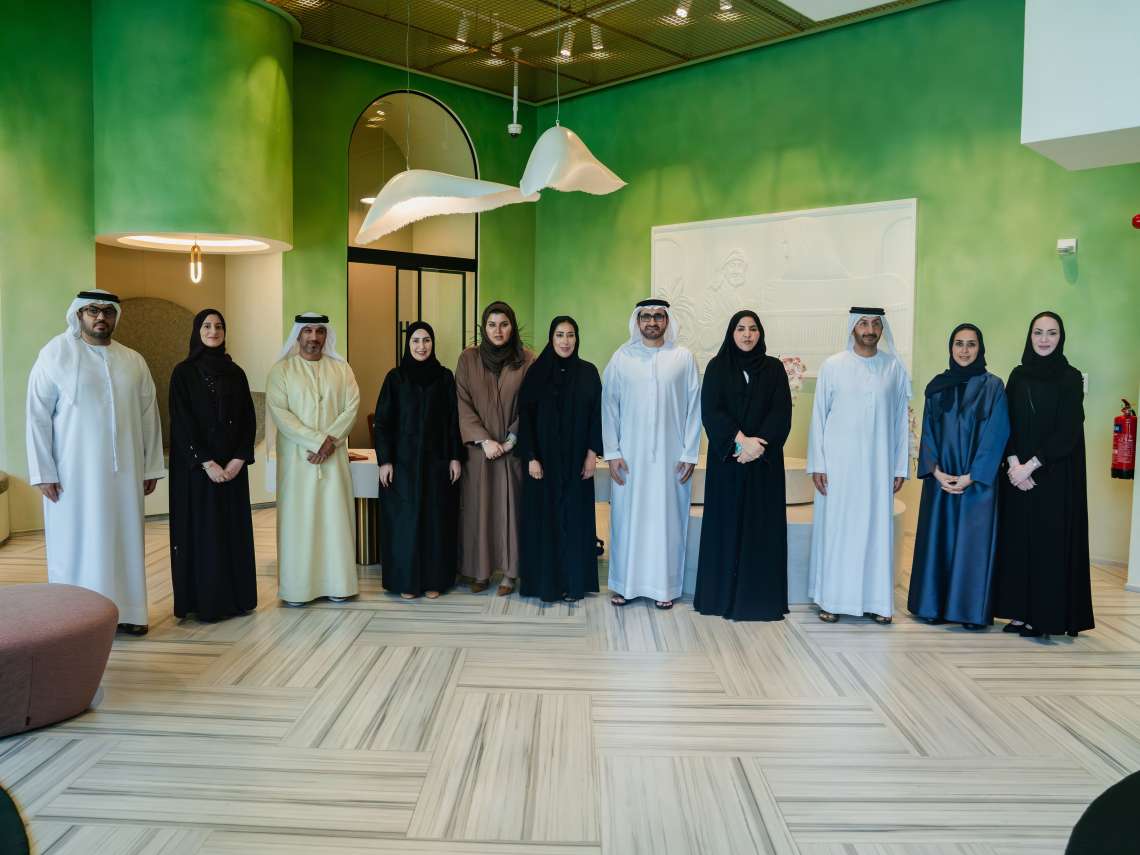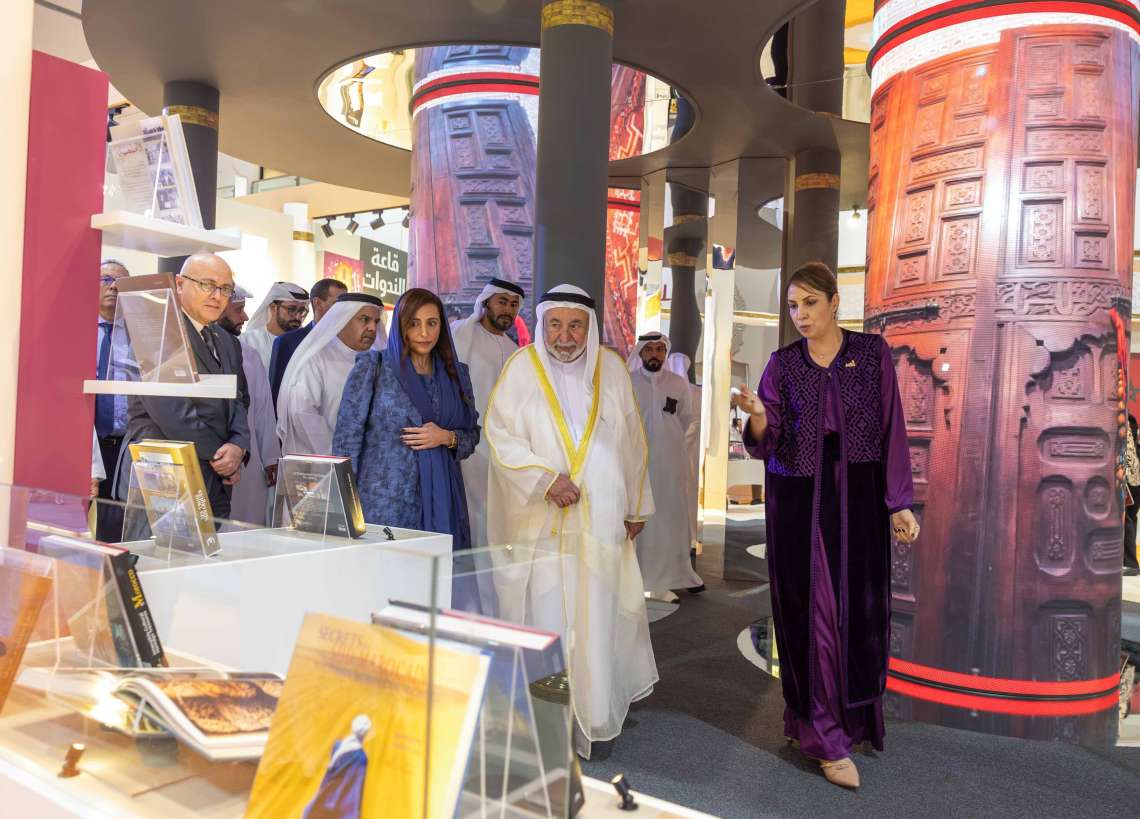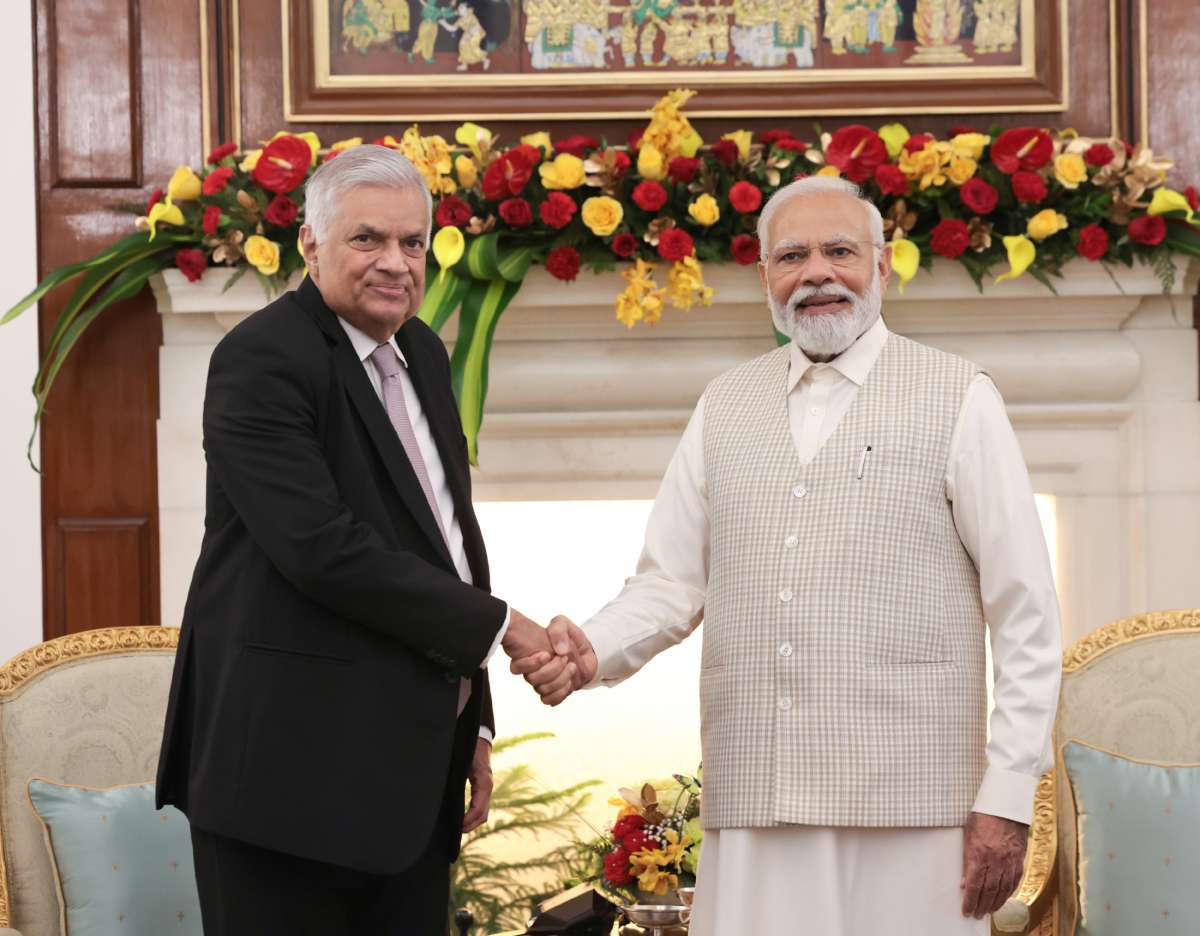During the grid connection ceremony, President Mirziyoyev was joined on stage by Mohamed Jameel Al Ramahi, Chief Executive Officer of Masdar…reports Asian Lite News
President Shavkat Mirziyoyev of the Republic of Uzbekistan witnessed the grid connection of renewable energy projects totaling 1.4 gigawatts (GW), developed by Abu Dhabi Future Energy Company PJSC – Masdar, one of the world’s leading clean energy companies.
During the grid connection ceremony, President Mirziyoyev was joined on stage by Mohamed Jameel Al Ramahi, Chief Executive Officer of Masdar.
The event was also attended by high-level government and state representatives for the Government of Uzbekistan and Saeed Matar Sultan AlSiri AlQemzi, Ambassador of the UAE to Uzbekistan, along with members of the global investment community.
The President highlighted during his speech the special relationship between the UAE and Uzbekistan, which has established a long-term partnership that includes the investment and development of renewable energy across Uzbekistan.
The projects connected to the grid include the Zarafshan wind farm and three solar projects located in Jizzakh, Samarkand and Sherabad, which represent the largest solar development program in the region.
On the sidelines of the ceremony, taking place in the presence of the Deputy Prime Minister of the Republic of Uzbekistan Jamshid Khodjaev, Masdar signed a new implementation agreement with the Ministry of Energy and the Ministry of Investments, Industry and Trade of the Republic of Uzbekistan to develop an additional 2 GW wind project.
The agreement also includes the deployment of battery storage systems with a capacity of 1,150 megawatt-hours (MWh) across five existing Masdar projects in the country. This brings Masdar’s total investment in Uzbekistan to approximately US$4 billion.
Dr. Sultan Al Jaber, Minister of Industry and Advanced Technology, Chairman of Masdar, and COP28 President, said, “The historic UAE Consensus achieved at COP28 sets out an ambitious climate agenda to keep 1.5°C within reach by transitioning to clean energy projects and reducing harmful emissions. The world has come together to set a target of tripling renewable energy capacity by 2030, and that means delivering projects at a scale greater than we ever reached before.
These ambitious projects will be an essential contribution to that shared goal, as we partner with Uzbekistan to support its clean energy objectives and strengthen the already powerful bond between our two nations.”
Abundant in both wind and sunshine, Uzbekistan is targeting 7 GW of solar and 5 GW of wind capacity by the end of this decade.
Al Ramahi said, “Uzbekistan is a key strategic destination for Masdar, and we are proud to expand our already active contribution to reaching the nation’s clean energy targets. The connection of these great projects demonstrates our long-term commitment to Uzbekistan and our capability to fast track projects, taking them from inception to implementation. We thank President Mirziyoyev and his Government for the trust they have placed in Masdar and for their invaluable ongoing support.”
In May, Masdar and Uzbekistan signed an agreement to develop 2 GW of renewable energy projects and 500 MWh of battery energy storage. Under this new implementation agreement, the battery storage component has been increased to 1,150 MWh, to be deployed across the Nur Navoi, Sherabad, Samarkand and Jizzakh solar projects, as well as at Zarafshan.
The 2 GW wind farm will produce enough electricity to power around 1 million homes, while displacing approximately 4 million tonnes of CO2 emissions annually.
Masdar has been active in Uzbekistan since 2019, with the development of the nation’s first successfully financed independent power producer solar project, the 100 MW Nur Navoi Solar Project, operational since 2021.
At the end of last year, Masdar was also awarded Uzbekistan’s Bukhara Solar PV project, the first of its kind in Central Asia, with a 250 MW solar capacity and a 126 MWh battery energy storage system. And in June this year, Masdar was awarded the country’s Guzar Solar PV project with a capacity of 300 MW and 75 MWh storage capacity.
ALSO READ: India Steadies Sri Lanka’s Boat Amid Economic Turbulence














